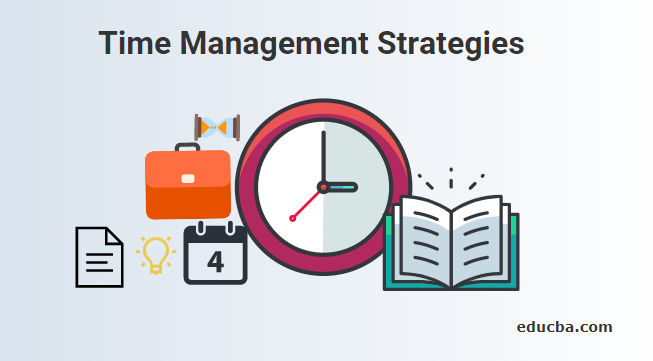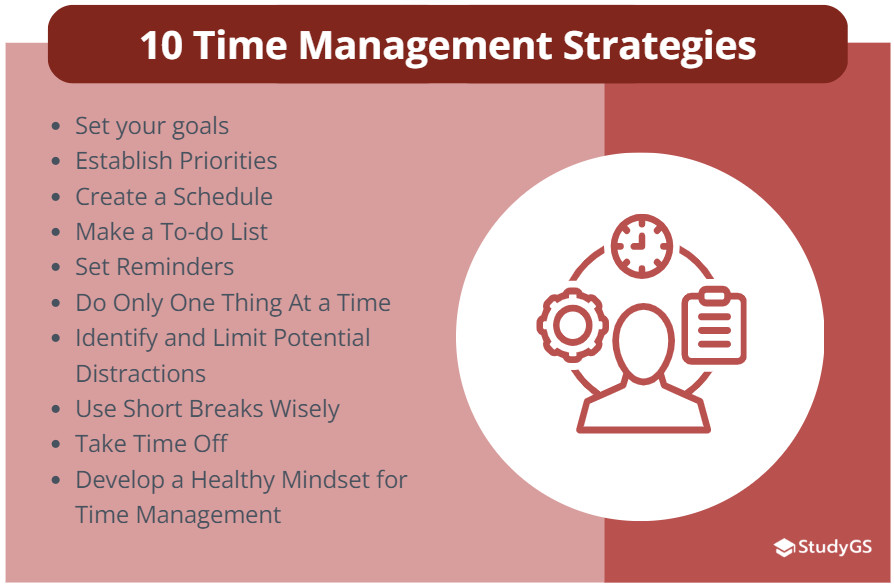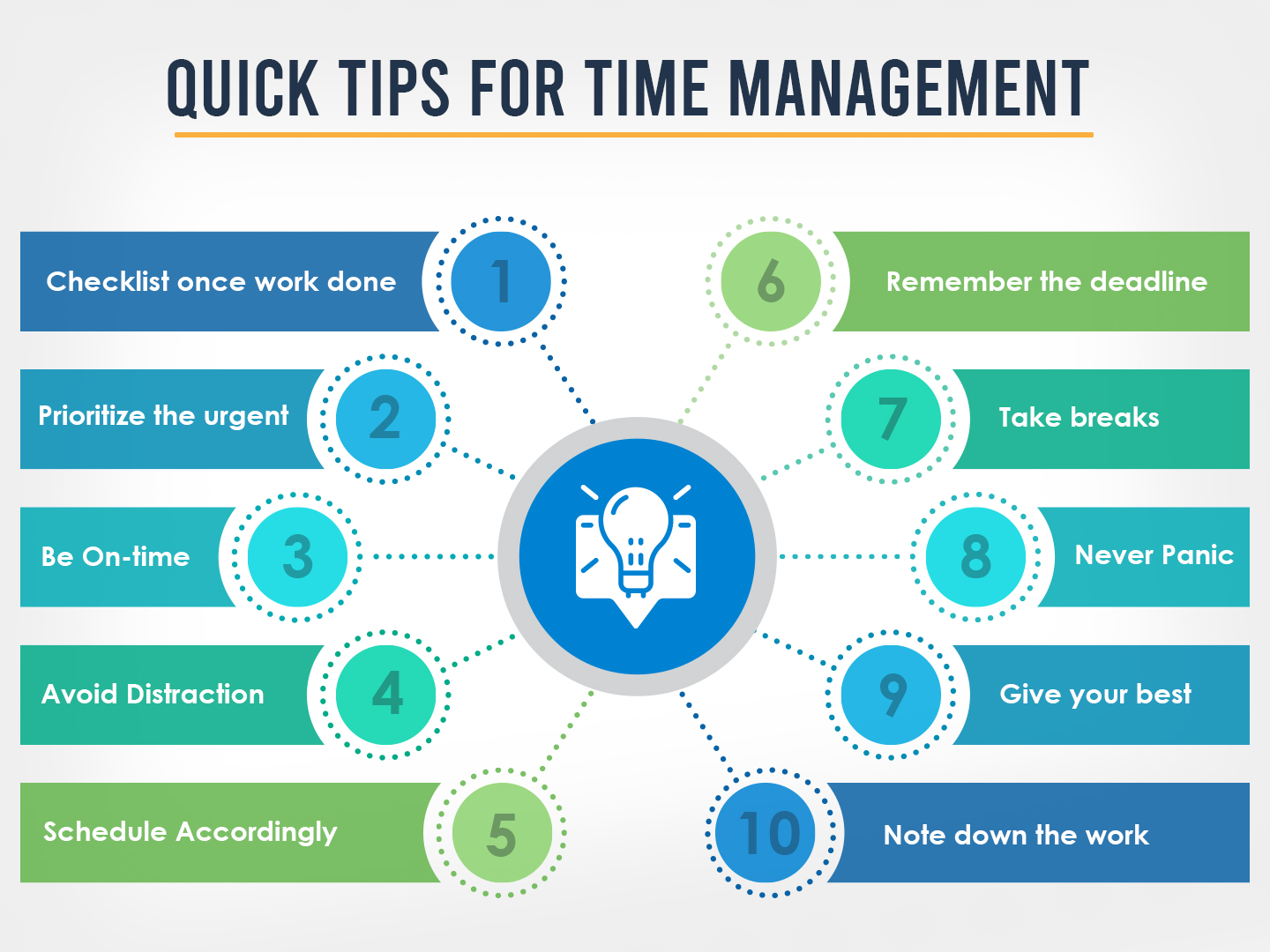In the fast-paced world we live in today, managing time efficiently is more important than ever. Time management is not just about planning your schedule—it’s about creating a balanced lifestyle that enhances productivity while reducing stress. Whether you’re aiming to excel at work, pursue personal goals, or simply enjoy more free time, mastering time management strategies can set you up for long-term success. Here, we explore some of the most effective time management strategies that can help you take control of your day and achieve your goals.
1. Prioritize Tasks with the Eisenhower Matrix
The Eisenhower Matrix is a powerful tool for distinguishing between urgent and important tasks. It divides tasks into four categories:
- Urgent and important: Do these immediately.
- Important but not urgent: Schedule these for later.
- Urgent but not important: Delegate if possible.
- Neither urgent nor important: Eliminate or minimize.
By categorizing your tasks, you can focus on what truly matters, reduce stress, and make more informed decisions about where to allocate your time.

2. Use Time Blocking for Better Focus
Time blocking involves scheduling specific blocks of time for different activities throughout your day. For example, reserve the first two hours of your workday for deep focus tasks, such as project work or brainstorming sessions, and allocate the afternoons for meetings or collaborative activities. This strategy helps you commit to a structured approach, minimizing distractions and making your work more predictable.
3. The Pomodoro Technique for Improved Efficiency
The Pomodoro Technique is a simple yet effective strategy where you work in focused 25-minute intervals followed by a 5-minute break. After four “Pomodoros,” you take a longer break (15-30 minutes). This method enhances productivity by encouraging intense focus and frequent rest, preventing burnout and maintaining energy levels throughout the day.

4. Set SMART Goals
Setting goals that are Specific, Measurable, Achievable, Relevant, and Time-bound (SMART) can help you stay organized and motivated. When your goals are well-defined, it becomes easier to break them down into manageable tasks and allocate your time accordingly. This clarity keeps you focused on what’s important and avoids wasting time on less impactful activities.
5. Learn to Say No
One of the most valuable time management strategies is knowing your limits. Overcommitting can lead to exhaustion and reduced productivity. By learning to say no to tasks or projects that don’t align with your goals or priorities, you create space in your schedule for the things that truly matter. It’s okay to set boundaries and prioritize your well-being.
6. Minimize Multitasking
While multitasking may seem efficient, studies show it often leads to lower productivity and increased errors. Instead, focus on one task at a time and give it your full attention. This approach allows you to complete tasks more quickly and with higher quality. When switching between tasks, you waste time and energy due to the cognitive load required for task transitions.

7. Use Technology to Your Advantage
In today’s digital age, there are numerous apps and tools designed to help with time management. Task management apps like Todoist and Trello can help you organize tasks and track progress, while calendar apps can help schedule and remind you of important events. Additionally, time-tracking tools like RescueTime or Toggl can help you monitor where you’re spending most of your time, revealing potential areas for improvement.
8. Set Boundaries for Work and Personal Life
Balancing work and personal life is key to maintaining productivity and avoiding burnout. Create boundaries by setting specific work hours and committing to turning off work notifications during non-working hours. This separation not only helps you manage your time more effectively but also ensures you have the space to recharge and enjoy time with friends and family.
9. Practice the Two-Minute Rule
The two-minute rule is an effective way to deal with small tasks that can be completed quickly. If a task takes two minutes or less, do it immediately. This prevents minor tasks from piling up and overwhelming you later. Whether it’s responding to a short email or tidying up your workspace, taking care of these small actions immediately can prevent them from becoming larger distractions.
10. Reflect and Adjust
To ensure your time management strategies are effective, make it a habit to review your progress regularly. At the end of each week, reflect on what worked well and what didn’t. Adjust your approach based on these insights to improve your productivity and better align your strategies with your goals. Continuous improvement helps you stay flexible and adapt to changes as needed.
Conclusion
Mastering time management is not just about finding more hours in the day—it’s about making the most of the time you have. By implementing strategies like the Eisenhower Matrix, time blocking, the Pomodoro Technique, and setting SMART goals, you can enhance your focus, reduce stress, and achieve long-term success. Remember, the key is to find the methods that work best for you and practice them consistently. With dedication, you can transform your approach to time management and enjoy a more productive, balanced, and fulfilling life.

